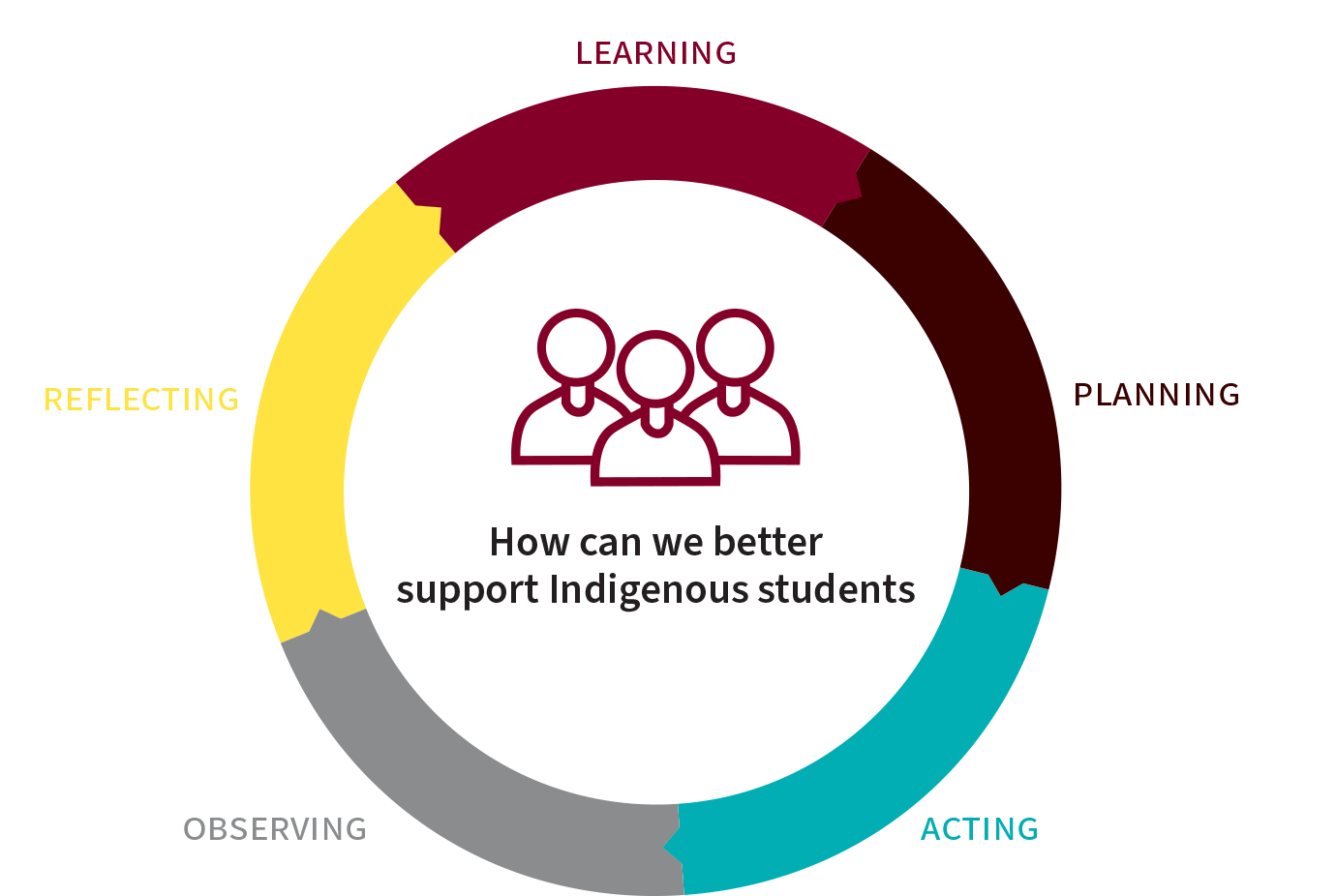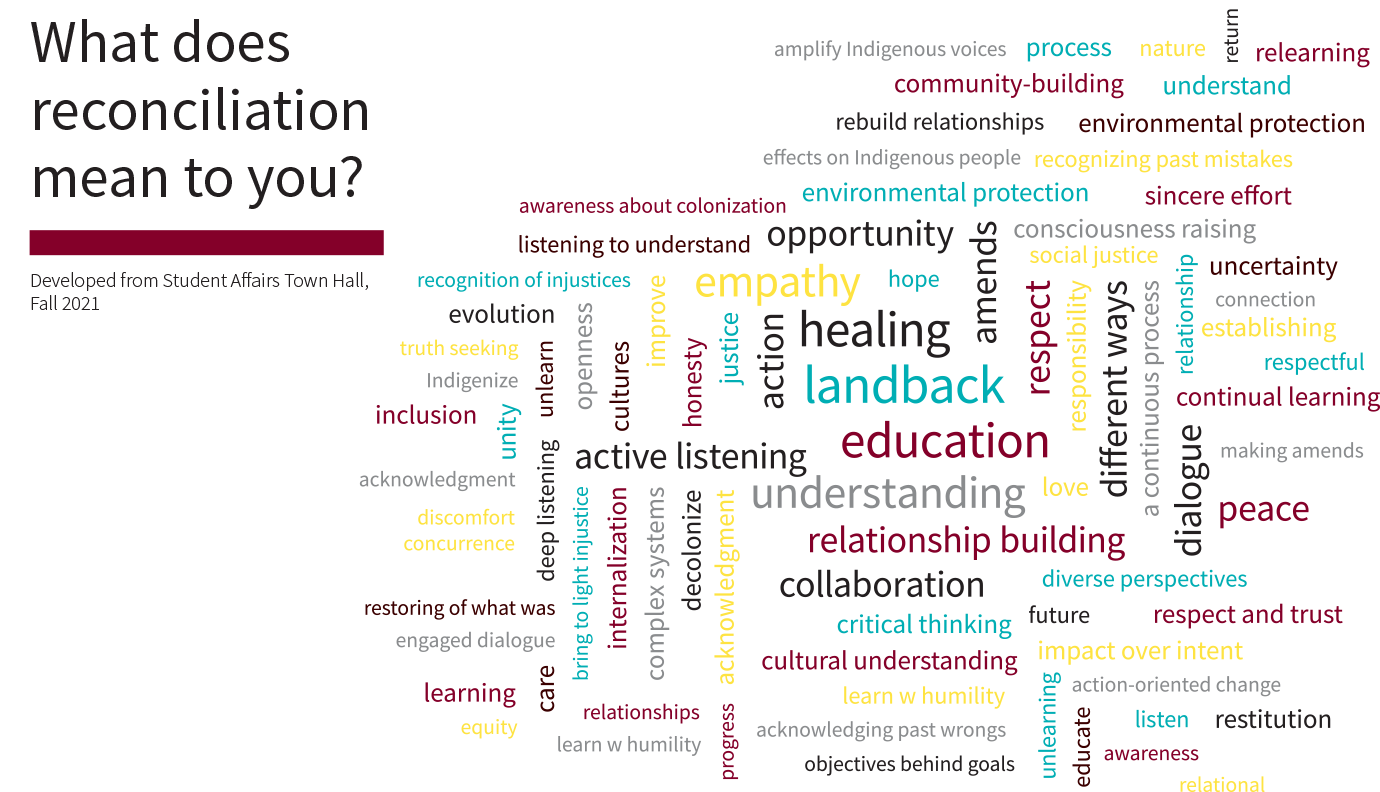To this end, we are further committed to the process of decolonization, Indigenization, reconciliation, and anti-racism. We recognize the overarching and intersecting calls to action from Canada’s Truth and Reconciliation Commission and the UN Declaration on the Rights of Indigenous Peoples. To succeed with an authentic approach to Indigenization and support for Indigenous learners, we must acknowledge that we operate within institutional and social structures framed primarily by Euro-centric worldviews. Indigenization requires a reframing that values and includes Indigenous experiences, knowledge, and perspectives.
In support of these commitments, the Student Affairs Division will work to:
- Uphold the Indigenous principles adopted by KPU and reflected in KPU 2050, KPU’s official campus plan.
- Pursue increased levels of understanding and awareness of the diversity of Indigenous histories, cultures, knowledge, and perspectives.
- Engage, consult, and learn directly from and with Indigenous students, employees, and communities.
- Pursue a process of ongoing continual improvement involving learning, planning, acting, observing and reflecting.
- Foster a safe, inclusive, and equitable environment for Indigenous students and community partners.
- Develop departmental service plans that reflect and act on these commitments.

Download PDF of Indigenous Commitments
Key Terms1
Decolonization: the process of deconstructing colonial ideologies of the superiority and privilege of Western thought and approaches. Decolonization involves valuing and revitalizing Indigenous knowledge and approaches, and weeding out Western biases or assumptions that have impacted Indigenous ways of being.
Indigenization: the collaborative process of naturalizing Indigenous intent, interactions, and processes and making them evident to transform spaces, places, and hearts. In the context of post-secondary education, this involves including Indigenous perspectives and approaches.
Reconciliation: addressing past wrongs done to Indigenous Peoples, making amends, and improving relationships between Indigenous and non-Indigenous people to create a better future for all.
1Cull, Hancock, McKeown, Pidgeon and Vedan (2018). Pulling Together: A Guide for Front-Line Staff, Student Services and Advisors. BCampus
Key Resources
The Truth and Reconciliation Commission of Canada: Calls to Action
Note: Calls to Action 6-12 are specifically related to educationThe United Nations Declaration on the Rights of Indigenous Peoples
Note: Articles 14 and 15 are specifically related to educationMMIWG2SLGBTQQIA+ National Action Plan: FINAL REPORT
BC Campus Pulling Together: A Guide for Front-Line Staff, Student Services, and Advisors
